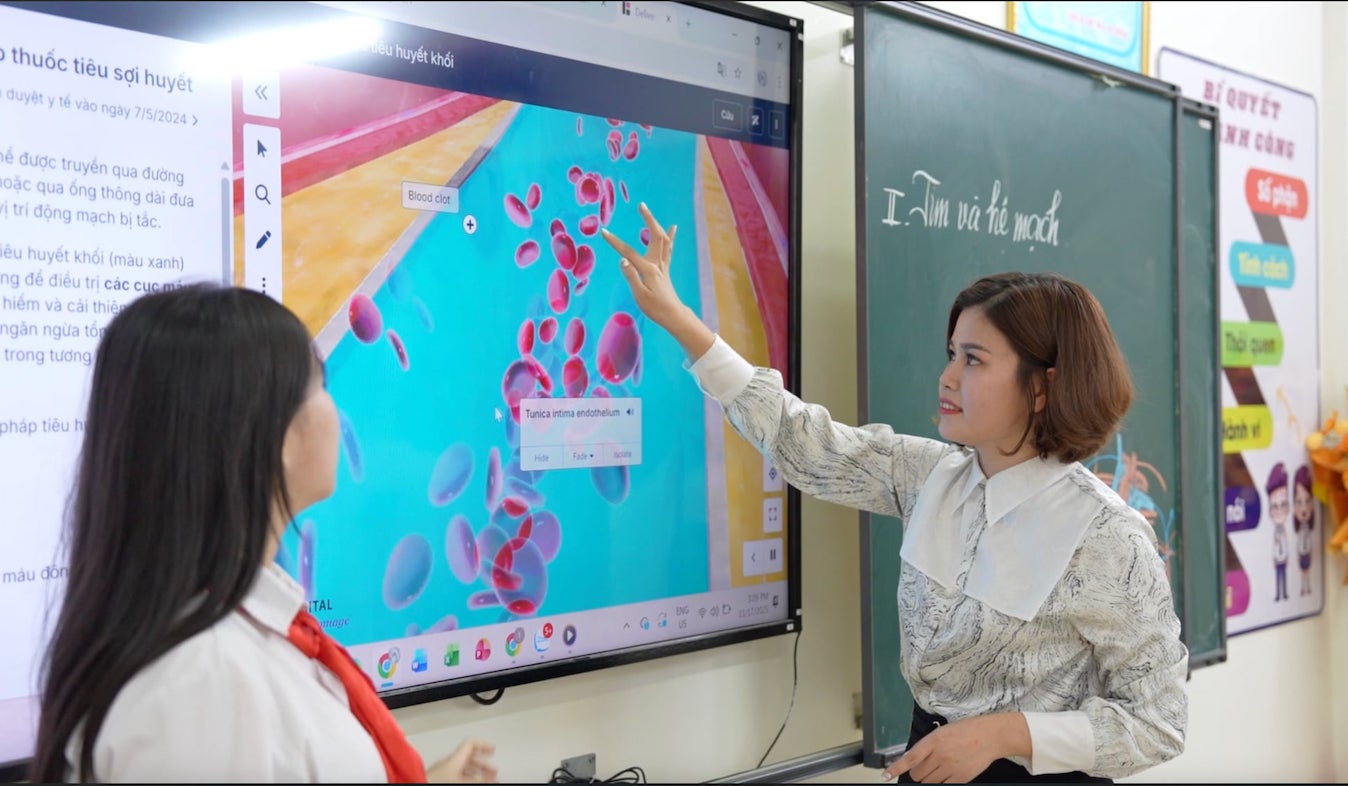The Ministry of Education and Training (MOET) has just sent a document to the Departments of Education and Training to ask for comments on the draft Guidelines for piloting artificial intelligence (AI) education in general education.
The Ministry of Education and Training believes that in the new context, artificial intelligence education plays an essential role in helping students develop the ability to receive, expand knowledge and be creative in the digital world.

Artificial Intelligence education helps students adapt and integrate with modern society, form and develop AI capabilities to apply in studying, work, and contribute to the development in the era of national growth.
Design according to 4 main knowledge flows, corresponding to 4 capability regions
The AI education framework for students is developed based on 4 main knowledge flows, corresponding to 4 areas of ability, blending and complementing each other, including: Human-centric thinking, AI ethics, AI techniques and applications, AI system design.
Designing the AI education content framework according to the main knowledge flows, in addition to knowledge about AI, also helps students clearly understand the line between the use of technology and social responsibility, ensuring AI serves human life safely and humanely.
Education content by school level
The content framework is designed corresponding to two levels of education: Basic education (including primary and secondary school) and vocational education ( high school). The content framework is designed throughout but clearly differentiated according to the psychology of each age group.
Primary level (Getting used): students recognize AI through visual applications (image recognition, voice recognition), understand that AI is created by humans and initially form a sense of personal data protection.
Secondary school level (Based understanding): understand the principles of operation (data, algorithms), practice using AI tools to solve learning problems and identify risks and prejudices of AI.
High school level (Career creation and Orientation): students design simple AI systems, develop thinking to solve complex problems and orient their careers in the technology field.
Flexible implementation form, no overload
According to the draft guidance, the Ministry of Education and Training requires the organization of AI education in general education to be proactive, flexible, and suitable to the conditions of localities and educational institutions in organizing implementation.
In particular, the Ministry requires that the implementation does not change or overload the General Education Program (GDPT),...
The Ministry of Education and Training encourages cooperation and socialization to mobilize resources to support expertise, learning materials and practical experiences, and have appropriate solutions so that all students, especially in areas with difficult socio-economic conditions, have the opportunity to access AI education, etc.
Expected implementation roadmap to ensure feasibility and efficiency
The Ministry plans, June - September 2025: Research theoretical and practical basis; draft the AI Education Content framework with the participation of experts and consultations with experts and international organizations.
October - November 2025: establish an Evaluation Council; organize workshops to seek opinions from Departments of Education and Training, experts, scientists, educational institutions and related organizations and individuals.
November: Draft Official Dispatch guiding the pilot implementation of AI education content for high school students, seeking public opinions from the Departments of Education and Training.
December 2025: Develop documents, train key teams to implement the pilot.
December 2025 - May 2026: piloting at a number of selected and regularly evaluated educational institutions.
June 2026: Summarize and evaluate the results of the pilot, complete the AI content framework to propose widespread implementation in the following school years.
In parallel with student education, the Ministry also piloted the application of AI in management, supported teachers in preparing papers and innovating assessment methods.











